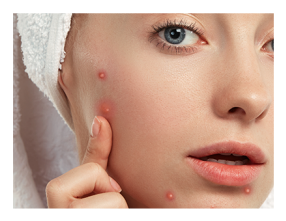Skincare routine for flawless Indian skin


As kids, we’ve all heard of the saying,” Face is the index of the mind”. This saying has been proven statistically as well. More than 50 % of the first impressions are made visually, i.e., what people see in an individual could greatly affect the conversations they are to have. It is essential to keep yourself presentable not just on occasions, but daily. Though attire and expressions contribute to this factor, your flawless skin also is a vital part of helping you create the best impression.
Indian’s skin requirements
Now you may wonder how can one define flawless skin. The first thing that strikes most people is a fair complexion. But that isn’t the truth. As individuals in the tropics, the Indian skin is way thicker and has entirely different requirements when compared with the Caucasians or the Whites. From the studies conducted on colour constitution based on UV exposure, it was found that the Indian skin type falls under Type 3-4 on a scale of 5. This means that Indian skin has a higher probability of tanning, but not sunburn. This makes our skin unique and requires products that can match our requirements for melanin-rich skin.
Problems faced by Indian skin
The most common issues include melanosis. In simple terms, heavy pigmentation under the eyes or around the mouth. To overcome this issue people generally use treatments using agents like bleach that offer a temporary solution but might have a greater impact on the skin in the long run. It is advisable to replace these agents with brightening elements like vitamin C. With our population growing exponentially at a drastic pace, our skin is also prone to humidity, extreme climatic conditions and UV. Apart from this, the water we use to cleanse our face also contains salts and minerals that can alter the nature of our skin.Key tips to protect your skin from damage
Now that we understand that our skin is exposed to UV and other radiations, the first precautious step is to protect our skin from damage due to UV. The best way is to apply sunscreen before stepping out. Using physical protective measures like hats or umbrellas also helps to a great extent.
Consult a dermatologist to know more about your skin type. You must use skin-type specific products. Using products that do not match your skin’s requirements would result in additional skin problems and not solutions.
Focus on your diet. The food you eat has a great role to play in maintaining the health of your skin. Adding proportionate levels of minor nutrients and vitamins can help in healing your skin problems. Staying hydrated is also an essential element in rejuvenating and keeping your skin healthy.
Skincare routine
Maintaining a skincare routine can help in solving most skin problems and also helps in preventing them from reoccurring. A good skin care practice can help your skin brighten up and prevent additional skin damage. Using the right products in the prescribed order and following the routine regularly helps your skin heal to a greater extent. The general rule is to start cleaning your skin with a mild or gentle cleanser followed by a toner, serum, moisturizer and finally sunscreen.Cleansing
Cleansing your face helps in getting rid of the excess oil and sebum produced in the skin along with dirt and other particles that settle from the surroundings. Make it a point to cleanse your face twice a day with a gentle cleanser to get rid of all the foreign particles and excess oil.Serum
The serum is a highly essential element in a skincare routine. Serum usually consists of active ingredients that can help in healing specific skin care problems. Visit your dermatologist or cosmetologist before using a serum to know if it is the right one for your skin/ skin problems. Serums being highly absorptive get into the deepest skin layers to heal your skin problems from the root.
Moisturiser
Most people with oily or acne-prone skin think that putting on a moisturiser might aggravate their skin problems. This is just a myth. Irrespective of what your skin type is, to keep it rejuvenated, putting on a moisturiser is a must. Moisturisers also contain active ingredients like vitamins and hyaluronic acid that can repair your skin. Avoid using greasy and heavy moisturisers. Gel-based moisturisers have a greater absorption capacity and also make sure that your skin doesn’t look excessively greasy.Sunscreen
Did you know that dermatologists recommend putting on sunscreen even when indoors? Yes, you read that right. It is essential to add sunscreen to your regular skincare routine to avoid problems like pigmentation, tanning and in worst cases skin cancer. It is preferable to choose a sunscreen with a minimum SPF of 30. In addition, it is also advisable to reapply sunscreen every few hours once to make sure that your skin stays protected. Apart from this routine, make it a point to deep cleanse or exfoliate your skin at least once a week. Deep cleansing can ward off the dead skin cells deposited on your skin, giving you clearer and flaw-free skin. Using eye cream as a part of your skincare routine can also prevent dark circles and puffy eyes. This also makes sure that your skin looks younger and bright. Most importantly, consult your dermatologist regularly and seek recommendations regarding products. Routine checkups can help avoid complications and also offer better solutions to all your skin-based issues.Visit your dermatologist today to know what your skin wants!
